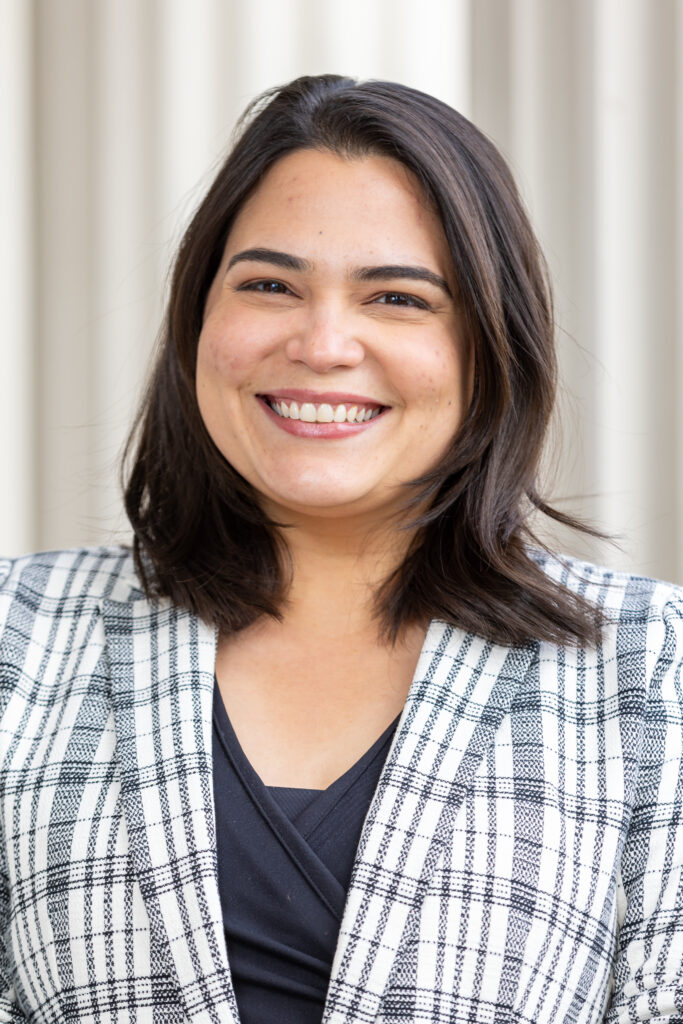Amaro ’18 Helping Bridge Gaps Between Government, Communities

As the director of multicultural media for the Massachusetts governor’s office, Valentina Amaro ’18 works to make sure that all communities feel they have access to state government.
She began the job in April, and as the first person in the role, she’s finding her way.
“The creation of this role was to give access to a lot of communities that have been here for a long time and feel more comfortable reading news and info coming from government in their own language,” said Amaro, who double majored in Political Communications and Marketing Communication.
Amaro connects the dots to make sure communities are being heard and that the administration is listening to them.
In her prior job at Archipelago Strategies Group, the phrase to “meet everyone where they are,” guided the marketing company.
“The nature of the government is a lot of numbers, names, types of laws, that are hard to understand – even if you are the beneficiary of one of those laws,” said Amaro. She bridges that gap in numerous ways, particularly from her own personal experience.
“I’m from Venezuela. I put myself in these people’s shoes. What is it they need to know? And how can I make sure they are understanding it and it’s not taking a lot of time from their day?” said Amaro.
Lately, she’s been spending a lot of time communicating about the new Massachusetts law, going into effect July 1, that allows anyone, regardless of immigration status, to get a driver’s license.
Along with the importance of meeting communities where they are, in their language, it is also vital to make sure media outlets are in step.
“It’s not just giving access, but also making sure media outlets have a mission of informing their community in their language. If we don’t know what’s happening in their news and what their community is saying, how are we going to do things to help [communities]?” said Amaro. “I think sometimes we’re worried about giving access, but also need to be [aware of] what El Planeta is saying, or what the radio stations are saying. It’s making sure I’m near a community, but also amplifying info that is being said in the outlets.”
Amaro estimates that she communicates with 60 media outlets across Massachusetts communicating in Spanish, Portuguese, Haitian, Chinese, Korean, and more. She said certain communities get their news through particular mediums. There are Haitian-specific radio and TV stations; Chinese newspapers; YouTube channels for particular Asian communities; Korean newspapers; and Vietnamese radio stations.
“Sometimes we tend to forget those local outlets that are smaller than the Boston Globe,” said Amaro. “We value these outlets that are communicating to make sure their communities are informed and a majority of the multicultural media outlets are free. They’re free in bodegas, supermarkets, and on radio.”
Amaro said her Emerson experience plays a huge part in her current role. She transferred from Miami, and became involves with the student organization Amigos. With her friend, Vera Santana ‘20, she created Raiz Magazine, the first bilingual publication at the school. The magazine continues today.
The magazine was initially submission-based, and Amaro enjoyed working with an empty canvas.
“We did pictures, poems, creative writing – anything that connects you to roots. Raiz means “root” in Spanish,” said Amaro. “We translated everything into Spanish and English, and back and forth.”
“To this day it makes me really proud that the magazine is still going on and is a thing for students,” said Amaro. “That was the first time I felt like I was impacting people by creating another channel to express themselves in their own language and share ideas from their cultures and feel more connected. For me, I felt like I could do that Emerson.”
Categories